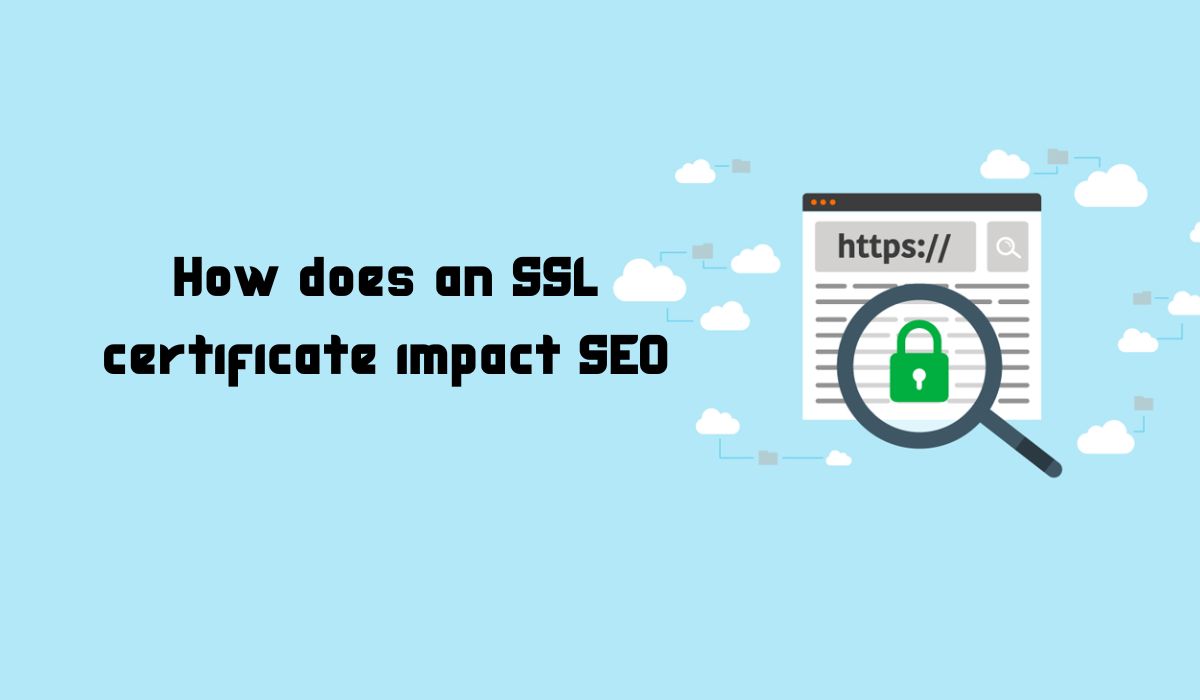You’ve probably heard that your website needs an SSL certificate Google ranking. But what no one really tells you (at least in plain English) is why it matters — especially when it comes to SEO. So let’s skip the tech jargon, cut the marketing buzzwords, and talk like real people.
Here’s what you actually need to know about how SSL certificate Google ranking affects your search rankings — and whether it’s worth your time.
First, What the Heck Is SSL?
SSL = Secure Sockets Layer.
What does that mean for you? It’s the thing that puts the little padlock icon in the browser and changes your site from http:// to https://.
Still not excited? That’s fine — but here’s why it matters.
SSL encrypts the connection between your website and whoever’s visiting it. That means their info (emails, passwords, credit card numbers, etc.) isn’t flying around in plain text for hackers to grab.
Even if your site doesn’t collect sensitive info, having SSL still matters. Here’s why...
1. Google Uses SSL as a Ranking Factor (Yes, Really)
Back in 2014, Google straight-up said:
“We use HTTPS as a ranking signal.”
Is it a big, powerful factor like content or backlinks? No. But in a competitive niche, even small wins add up. If your site and your competitor’s site are neck-and-neck, and you’re still using HTTP while they’ve got HTTPS, they win.
Think of SSL like a tie-breaker in SEO. It might not carry your site to the top by itself, but without it? You’re handicapping your chances.
2. “Not Secure” in the Browser = Instant Trust Killer
Ever landed on a site that says “Not Secure” in big, scary letters next to the URL?
What did you do?
Exactly — you bounced.
And guess what? Google sees that. When users land on your site and immediately leave, it increases your bounce rate, which is bad for SEO. It tells Google your site isn’t trustworthy or useful — even if your content is great.
So yeah, SSL certificate Google ranking protects your data, but it also protects your reputation. First impressions matter.
3. It Improves the User Experience (And Google Is Obsessed With That)
Google wants people to have a good time online. Secure sites make people feel safe. Safe users stay longer. Users who stay longer make Google happy.
Simple as that.
No SSL = worse user experience.
Worse experience = lower rankings.
It’s not rocket science.
4. You Get Better Tracking in Google Analytics
Here’s something most people don’t know:
When your site isn’t secure, a bunch of your traffic in Google Analytics shows up as “direct” — even if it came from a real source like another website or social media.
So not only are you hurting your SEO, you’re flying blind.
With SSL in place, your referral data stays intact, so you know exactly where your traffic is coming from and what’s working.
5. SSL Is Basically Required in 2025
Want to run ads? Sell stuff online? Collect emails?
You need SSL. Period.
Google Chrome, Firefox, Safari — they’re all warning users when a site isn’t secure. And in some cases, blocking those sites altogether from doing things like payments or logins.
Running a site without SSL in 2025 is like running a store without a lock on the door. It’s not just bad for SEO — it’s risky for everyone.
So… Is It Worth It?
100%. No debate. No “it depends.” If your website still doesn’t have SSL, fix that yesterday.
The best part? It’s usually free.
Most hosting companies offer free SSL certificates (like through Let’s Encrypt), and some even auto-install them for you. If yours doesn’t, time to switch hosts.
Need help securing your site and boosting your online presence?
We're a results-driven
Digital Marketing Company in Kolkata — and we know what it takes to keep your business ahead of the curve.
Bottom Line
SSL makes your site more secure
SSL certificate Google ranking ranks HTTPS sites higher (even if only slightly)
It helps you build trust with visitors
It improves user experience
It’s free (or super cheap)
There’s really no reason not to do it.
SSL won’t fix all your SEO problems. But not having it? That’s a problem in itself.
Need help turning on SSL or making sure your site’s SEO-ready?
Contact our experts — we’ll help you get it sorted.
Check out
our website for more details.
